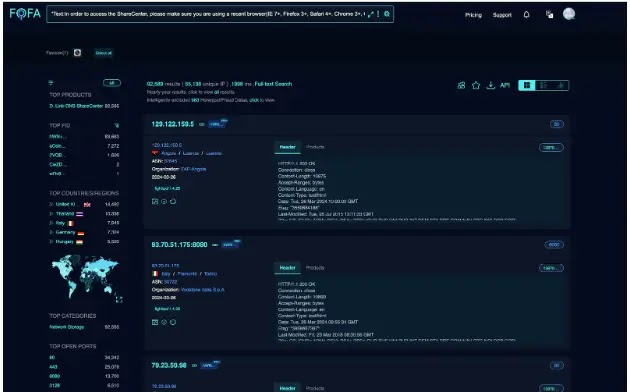A new command injection vulnerability and a backdoor account have been discovered in D-Link Network Attached Storage devices, which affects D-Link NAS devices, including DNS-340L, DNS-320L, DNS-327L, and DNS-325, among others.
This exists in the nas_sharing.cgi file of these devices and the command injection vulnerability (CVE-2024-3273) exists in the system parameter.
As a matter of fact, these vulnerabilities affect more than 92,000 D-Link NAS devices that are exposed over the internet.
However, patches for these vulnerabilities have been published by D-Link and users are encouraged to patch them as soon as possible.

Vulnerability Details
According to the reports shared, if these vulnerabilities are subjected to exploitation, it could allow a threat actor to perform an arbitrary command execution on the affected device and gain access to sensitive information.
Trustifi’s Advanced threat protection prevents the widest spectrum of sophisticated attacks before they reach a user’s mailbox. Try Trustifi Free Threat Scan with Sophisticated AI-Powered Email Protection .
Additionally, a threat actor could also potentially perform a system configuration alteration or denial of service by specifying a command via the command parameter.
The nas_sharing.cgi is a CGI (Common Gateway Interface) script that has a hardcoded account that could be used as a backdoor through username and password exposure.
The exploitation is very simple as the parameter request includes a username (user=messagebus) and an empty password (passwd=). This could provide unauthorized access for threat actors without any proper authentication.
Further, command injection can be performed through the System parameter, which carries a base64-encoded value that, when encoded, becomes a command.
Exploitation
A threat actor can craft a malicious HTTP request targeting the /cgi-bin/nas_sharing to exploit this vulnerability.cgi endpoint.
The resulting response of this HTTP request contains the decoded system parameter value sent in the request.

Affected Products
- DNS-320L Version 1.11, Version 1.03.0904.2013, Version 1.01.0702.2013
- DNS-325 Version 1.01
- DNS-327L Version 1.09, Version 1.00.0409.2013
- DNS-340L Version 1.08
Users of these products are recommended to upgrade to the latest versions in order to prevent the exploitation of these vulnerabilities by threat actors.
Is Your Network Under Attack? - Read CISO’s Guide to Avoiding the Next Breach - Download Free Guide
